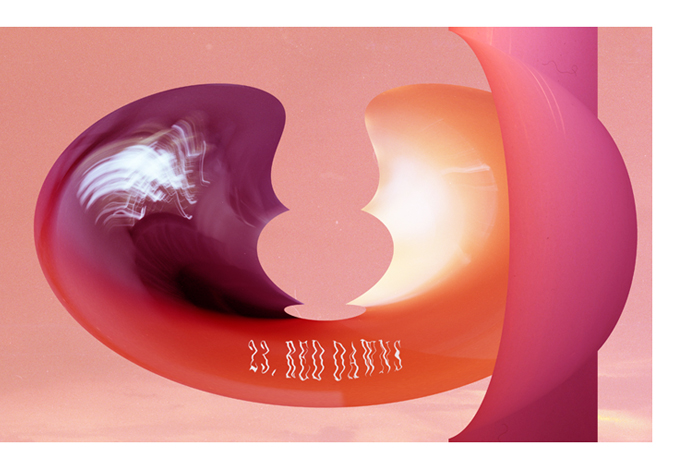 |
|||
|
|
Translating as a form of feminist engagement
Talk: Translating as a form of feminist engagement 8.3.2022 at 17:00 SCCA-Ljubljana Metelkova 6 1000 Ljubljana
In anticipation of the publication of the Slovenian translation of the booklet by bell hooks, Feminism Is for Everybody: Passionate Politics, the focus of this year’s edition of the Red Dawns festival are translators of feminist literature, their work, the reasons behind it and the challenges they face. Feminism Is for Everbody will be the second translated work of the author into Slovene and, like the first translation, will also be published by Sophia Publishing House. The discussion will be moderatored by Tea Hvala, who herself translated Silvia Federici’s work Caliban and the Witch: Women, the Body and Primitive Accumulation, and joined by Ana Makuc, poet and translator (also of the forthcoming booklet Feminism is for Everybody), Mojca Dobnikar, a proof-reader and translator, who translated bell hooks’ work Where We Stand: Our Class Matters and Cinzia Arruzzas’ Dangerous Liaisons: Marriages and Divorces of Marxism and Feminism for the Sophia Publishing House, and, last but not least, Katja Čičigoj, who translated Shulamith Firestone’s work The Dialectic of Sex: The Case for Feminist Revolution and wrote an accompanying study on it for the Založba /*cf. – Institute for Publishing and Research. All participants are not only translators, but have extensive experience in feminist activism in many fields, be it philosophy, art, politics, journalism, social work or the fight against violence. With them we will discuss, among other things, the definition of feminism by bell hooks as ‘a movement to end sexism, sexist exploitation, and oppression.’ ******************************* Tea Hvala has a BA in comparative literature and sociology of culture and an MA in gender anthropology. She is a writer, editor, critic and translator. In the past, she co-organised the Red Dawns festival (2000–2014). Since 2015, she co-organises the Deuje babe (Wild Hags) festival at the Cerkno Alternative Youth Club (C.M.A.K.). Since 2018, she oversees the City of Women’s art education programme. She is the (co-)author of numerous zines, teaching materials and the children’s book Skrivna bolnišnica (Secret Hospital, 2017), as well as the editor of the travel guide A Path of Their Own: 25 Excursions into Women’s History (2021). In 2019, Sophia Publishing House published her translation of Silvia Federici’s Caliban and the Witch. Ana Makuc graduated in comparative literature and English (2008, The Faculty of Arts, University of Ljubljana) and obtained her PhD degree in gender and women’s studies (2014, Lancaster University, United Kingdom). Between 2014 and 2019, she was a co-creator of the International Feminist and Queer Festival Red Dawns. From 2016 to 2020, she was self-employed in culture as a writer and translator. In 2016, she received the Veronika Award for the best poetry collection of the year for her debut Roland Barthes’ Lover (2015, Fraktal, KUD Apokalipsa). Her poetry, translations in the fields of literature and humanities, and scholarly articles in the field of feminist literary criticism have been published in numerous journals and books. Mojca Dobnikar, BEc, has been among the founders and/or co-workers of many feminist groups and projects, such as Lilit Group, Yougoslav Feminist Meeting in Ljubljana, SOS-Helpline for women and children – victims of violence, free legal help for victims of violence, campaigns to end violence against women, website www.spol.si, etc. She was chief editor of the book edition Krt (now Publishing House Krtina) and editor of the feminist electronic newspaper F-Mail. Since her student years she has been translating in the fields of social sciences and humanities. Among others, she translated texts by Cinzia Arruzza, Judith Squires, Luce Irrigaray and Alexandra Kollontai. Katja Čičigoj is a scientific collaborator at the Chair of Practical Philosophy, Paderborn University (GER), where she is lecturing in social philosophy and completing her doctoral studies. She co-edited the thematic issues of Dialogi »Why Feminism Today?« (2017) and »Gender and Violence« (2019). In 2014 she co-founded the feminist reading group Delfinke (KUD Anarhiv), which she co-coordinated until 2021, in 2018–2020 she co-organised a lecture series on feminism in THL. She translated Shulamith Firestone’s The Dialectic of Sex: A Case for Feminist Revolution (*cf. publishing house, 2019), authored the accompanying study and organised the international symposium »Feminist utopias« (City of Women Festival, 2019). She translated Carol Hanisch’ essay »The Personal is Political« (Disenz, 2020) and articles in critical social theory for Maska. She is currently co-editing a volume on Firestone and feminist utopias of reproduction, out with the *cf. publishing house in 2022. ******************************* ******************************* Info Organisation: 23rd International Feminist and Queer festival Red Dawns Coproduction/coorganisation: Sophia Publishing house, SCCA-Ljubljana, Društvo za uveljavljanje enakosti in pluralnosti Vita Activa- spol.si Design of the poster and graphic design: Urška Preis Contacts for media and press: Saša Nemec, rdece.zore@gmail.com Financial support by City Council Ljubljana Financial support of particular events by the European Union – the ERASMUS + program and co-financed by the European Union under the European Solidarity Unit program. ******************************* Important With the Ordinance on Interim Measures for the Prevention and Control of Infectious Diseases COVID-19, which entered into force on 21 February 2022, the Government is also releasing restrictions on cultural activities and the collective exercise of religious freedom. All temporary epidemiological restrictions on the provision of cultural events and other cultural services and on the collective exercise of religious freedom have ceased to apply. Preventive hygiene measures remain crucial. More on gov.si. ******************************* ******************************* |
MARCH 8TH 17:00
Translating as a form of feminist engagement
|
|